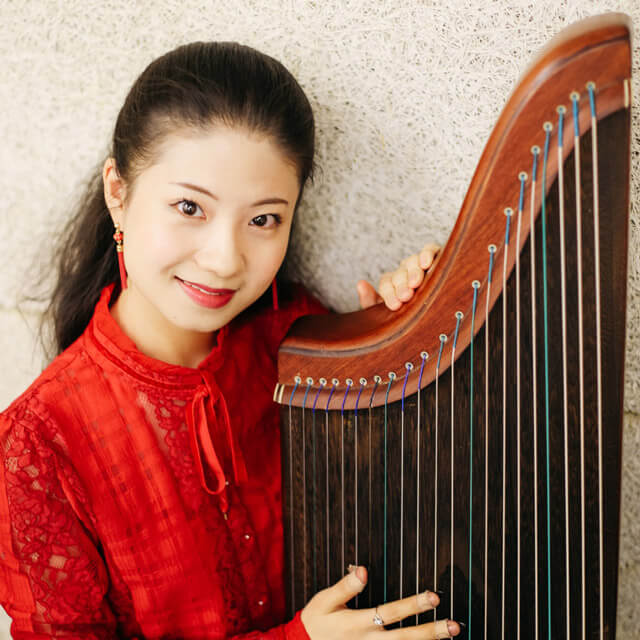
Esther Shuyue Cao is a fourth-generation inheritor of the intangible cultural heritage of performing Cao-style Chinese zither. She is also a composer, vocalist, and multi-instrumentalist with longstanding interests in combing Chinese and Western traditions in her music and transcending cultural boundaries.
She was born into a musical family. Her grandmother and mother were both professional Guzheng (a traditional Chinese zither) performers. She started learning Guzheng from her grandmother at the early age of four; later on, she also learned other Chinese traditional instruments: Erhu (fiddle), Pipa (lute), Hulusi (cucurbit flute), Chinese folk singing, and piano.
Esther Shuyue Cao studied Chinese traditional-instrument performance in National Academy of Chinese Theatre Arts. She obtained her bachelor degree in composition from Wichita State University and a Master of Music degree from Mannes College (NYC). She is currently pursuing a Doctor of Musical Arts degree at The Hartt School.
As a performer, she has played in the Chinese Music Ensemble of New York, and other chamber ensembles. As a composer, San Xia Chinese Traditional Orchestra and Shenzhen Arts School have invited her to serve as a long-term residency. Her music has been featured in the United States, China, Ireland, etc. Esther was awarded as a visiting professor from Yayue Culture & Fine Art Center, and Cheng Mei School of Arts in Hubei, China. Since 2018, She has become a member of a panel of judges in the China Nationalities Orchestra Society (CNOS) for Chinese traditional instruments evaluation.
My teaching philosophy is driven by the goal of preparing students with skills for musical success and helping them to develop moral integrity.
Being committed to excellence in teaching, I design my course in a way that focuses on ethics and aesthetics. In my lesson, students are not only able to possess and improve their musical ability but also find a doorway to self-growth. Students will discover a simple formula for expressing their music emotion.
Each student is unique and learns differently. As a teacher, I believe that it is important to help students identify their strengths and weaknesses. I will do my utmost to find materials and techniques that are best suited to their strengths, and help them overcome the weaknesses.
Observing from others is always an effective method of learning music. These kinds of observations contain performance techniques, emotional expression, onstage presence, stylized characteristics, and so forth. Therefore, I would like to encourage my students to attend performances as many as possible in order to exercise their courage, learn from each other, and gain more public performing experience.